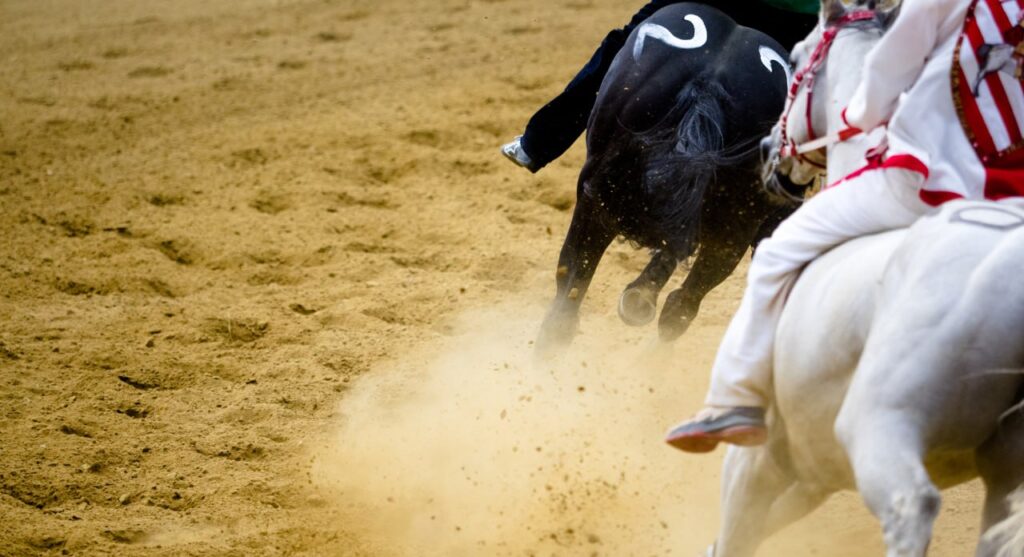Horse racing, often revered as the “Sport of Kings”, boasts a vibrant history that spans continents and centuries. The sport has evolved into a global spectacle, from ancient chariot races to today’s prestigious thoroughbred competitions. Let’s saddle up and explore the thrilling journey of horse racing through the ages!
Ancient Origins and Cultural Significance
- Ancient Civilizations: Archaeological evidence suggests horse racing was prevalent in Ancient Greece, Rome, and even the empires of Babylon and Egypt. In Greece, races were not only a sport but also part of the Olympic Games, showcasing the agility and speed of horses that were highly prized. In Rome, these contests were elevated to grand spectacles, featuring in the city’s grand celebrations and religious festivals, reflecting the deep-rooted cultural significance of the sport.
- Myth and Legend: Horse racing also prominently appears in the myths and legends of various cultures, including Norse mythology, where gods are depicted as competing on horseback. These stories often highlight the horses’ supernatural qualities and heroic status, illustrating their value beyond mere transportation to symbolize strength and divine favor.

The transition from chariot to mounted racing marked a pivotal evolution in the sport during ancient times. By 648 BCE, horse racing was a staple in the Greek Olympics, admired for its competitive nature and perilous stakes. The Romans later adopted these races, transforming them into a major industry notorious for both spectacle and the dangers faced by riders and horses alike.
The Sport of Royals
British Aristocracy: In Britain, the sport gained prominence in the 18th century, with figures like King Charles II leading the charge in Newmarket, the heart of British horse racing.
Jockey Club Formation: By 1750, the establishment of the Jockey Club set standardized rules, curbing dishonesty and ensuring fair play.
The modern era of horse racing owes much to these historical foundations. Iconic races such as the Epsom Derby and the Triple Crown series draw massive crowds and showcase the pinnacle of equine performance. These events are not just about racing; they are grand celebrations of equestrian tradition and skill.
Modern Marvels and Impact:
- Legendary Horses
Thoroughbreds like Secretariat have left indelible marks with record-breaking performances in races like the 1973 Triple Crown. These extraordinary animals become legends, capturing the hearts of millions and elevating the status of horse racing to a global spectacle. - Economic and Social Contributions
The horse racing industry significantly impacts economies, offering substantial career opportunities and financial contributions. From racetrack operations and betting syndicates to equine care and training, the sport generates billions in revenue worldwide. Beyond its economic scope, horse racing also fosters a unique cultural and social environment, uniting people across various backgrounds at iconic events.
Horse racing’s resilience is evident. It continued even during the global disruptions of the 2020 COVID-19 crisis, albeit without spectators in places like Australia and Hong Kong. This adaptability highlights the enduring appeal and cultural significance of horse racing.
Join the Legacy!
The saga of horse racing is a blend of history, adrenaline, and legacy. New legends are born with each race, and the ancient bond between man and horse is celebrated. It’s a sport that transcends time, inviting us to be part of its ongoing story — a story of heroes, speed, and the crowd’s thunderous applause at the finish line.
